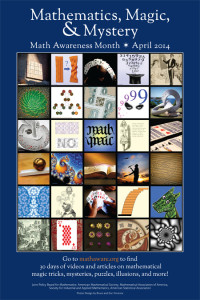 While School Librarian’s Workshop subscribers will soon be receiving their February/ March 2014 issue, I am almost finished with the April/May 2014. With April being Math Awareness Month, I have STEM on my brain. If you recall a previous blog post on “Chopportunities,” we need to look at all challenges as being a potential opportunity.
While School Librarian’s Workshop subscribers will soon be receiving their February/ March 2014 issue, I am almost finished with the April/May 2014. With April being Math Awareness Month, I have STEM on my brain. If you recall a previous blog post on “Chopportunities,” we need to look at all challenges as being a potential opportunity.
As with Common Core, too many librarians regard the initiatives as leaving them out in the cold. Instead of feeling left out of the discussion and seeing STEM subjects as strictly classroom-related, find ways to become part of the learning. My own natural interests are in literature and history, but I have had wonderful collaborations with science teachers, and, yes, with math teachers as well. Granted, I didn’t see the latter that often, but the occasions were fun for the kids and for me as well. (There’s a Teaching Together unit on Math in that April/ May issue.)
You know the STEM acronym, and some of you are aware that the art and music teachers are fairly successfully lobbying to expand it to STEAM. They point to the mental and other connections the arts have to math and science. Librarians have started a push to extend the acronym even further and make it STREAM—with the “R” standing for Research.
Think of what scientists do. Can you imagine any of them doing their work without research? Research is ingrained into their discipline. Engineers need to research what has been done and what is new on the horizon. Mathematicians regularly explore their colleagues’ exploration of complex problems. If students are to be encouraged to pursue career in STEM, they need to learn how research is incorporated.
Convincing teachers of the importance of research in these subject areas is not easy. Begin by reaching out and sharing resources with them so they come to see you as a partner. Here’s one you might use http://www.stemresources.co.uk. Others will be in School Librarian’s Workshop.
 Small steps today lead to large gains over time for your library program. Teachers, particularly math teachers, are not likely to come to you with a research project. You will have to design one based on resources you have available. Show them your proposal and be open to any change they would like to make. All you need is to get a foot in the door.
Small steps today lead to large gains over time for your library program. Teachers, particularly math teachers, are not likely to come to you with a research project. You will have to design one based on resources you have available. Show them your proposal and be open to any change they would like to make. All you need is to get a foot in the door.
